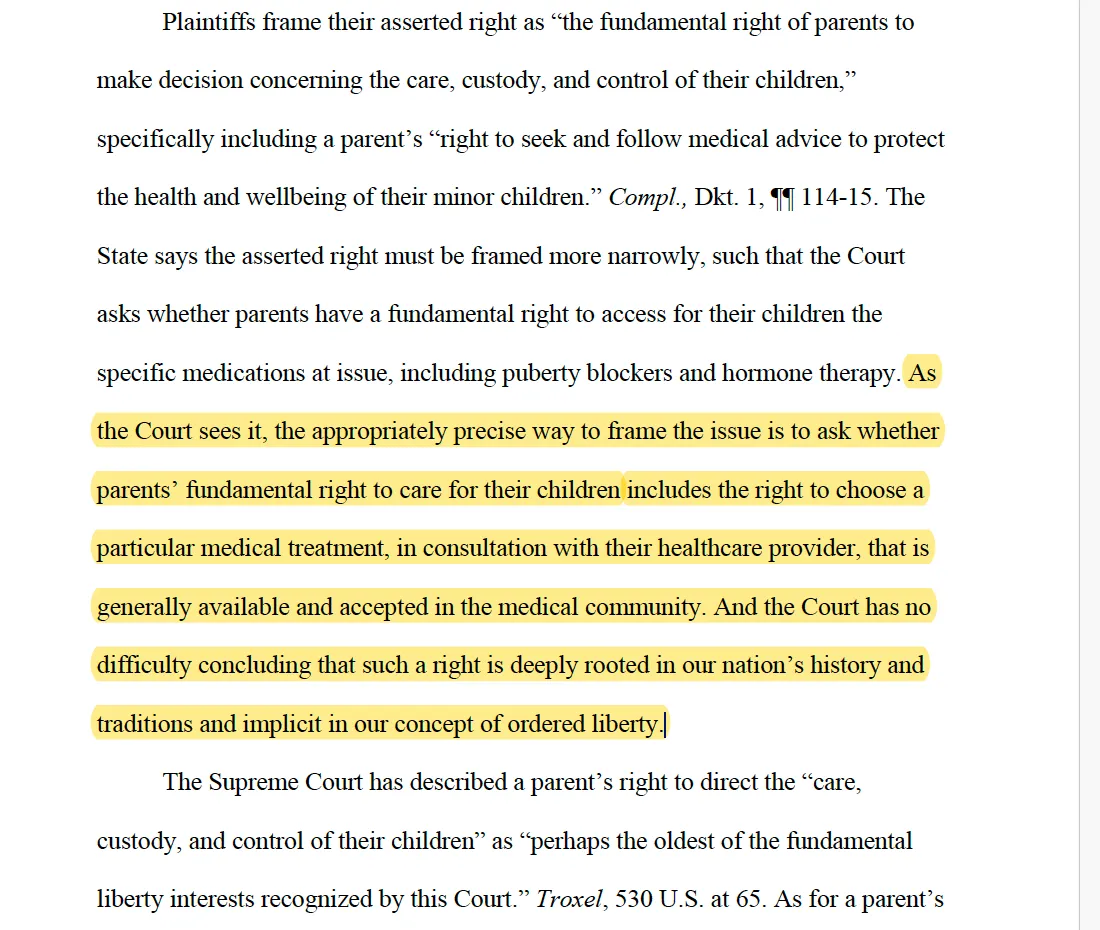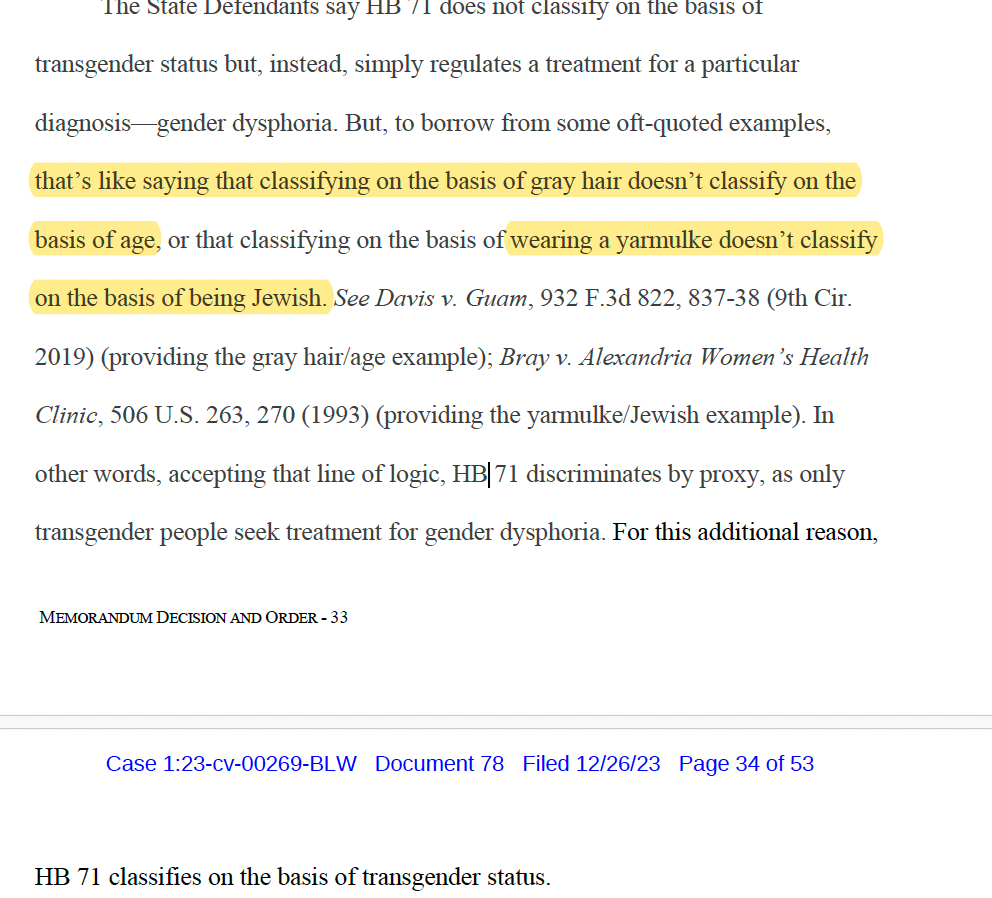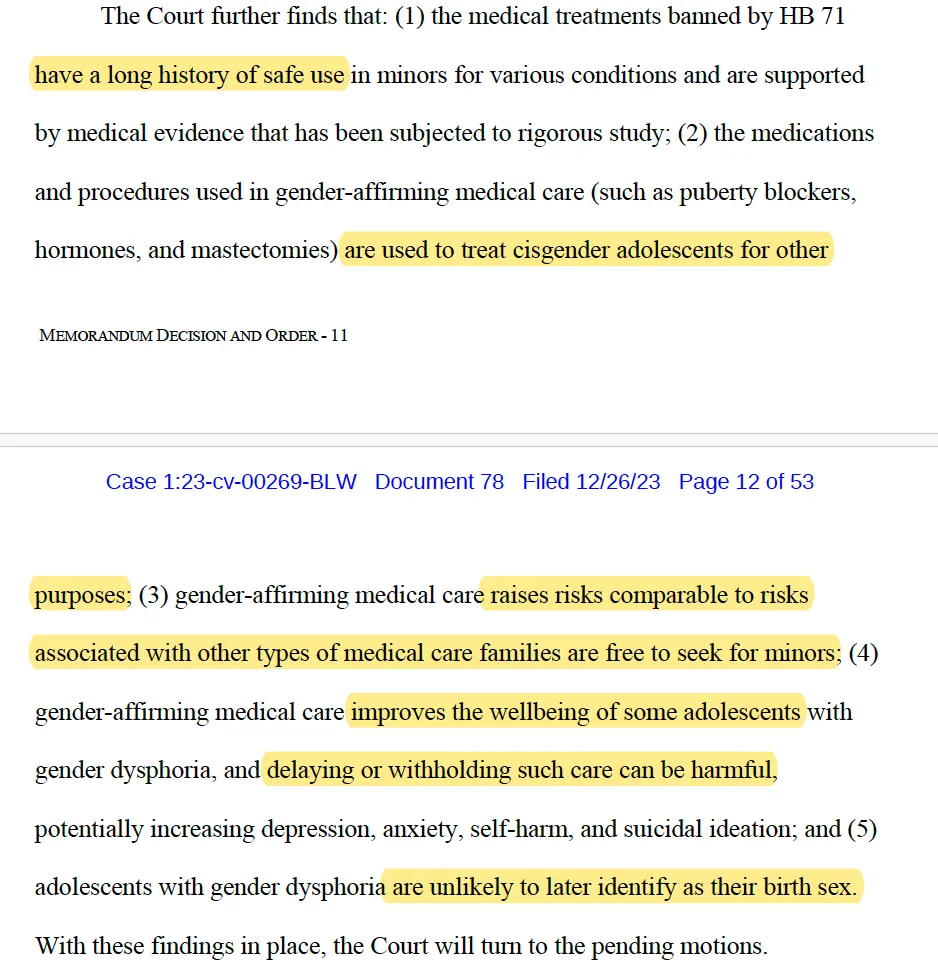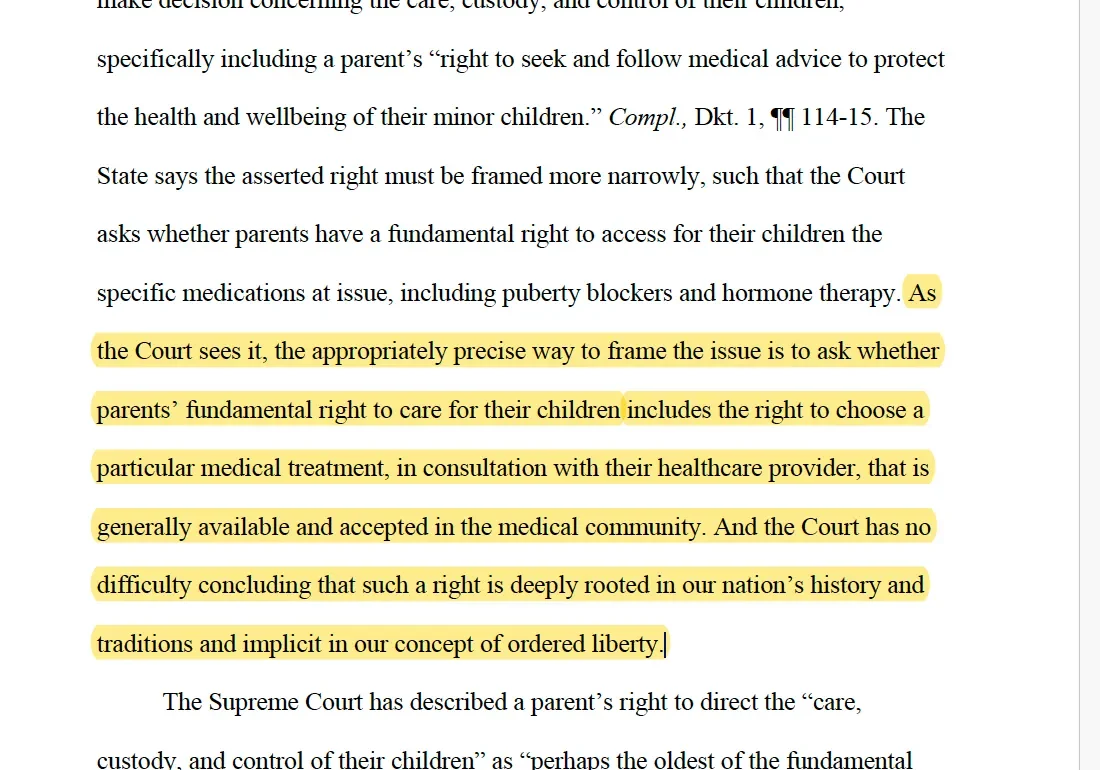By Erin Reed | MISSOULA, MT. – On Tuesday, Judge B. Lynn Winmill, a federal judge in Idaho, ruled that a ban on gender-affirming care in the state violates the equal protection and due process rights of parents and their transgender children.
The court also ruled that gender-affirming care is “safe, effective, and medically necessary” for transgender youth. Importantly, the court directly addressed the arguments from the 6th and 11th Circuit Appeals Courts that gender-affirming care is not “traditionally protected.”
It argued that the right to seek medically accepted care for children is “deeply rooted in this nation’s history and traditions.” In doing so, the judge ordered a preliminary injunction to block state attorneys from enforcing the law, allowing the continuation of care in the state.
The decision, issued in a 51-page memorandum and order, is notable in that it responds to recent circuit court cases in more conservative court circuits that have allowed bans to go forward.
Earlier this year, Republican-appointed judges in the 6th and 11th Circuit Courts ruled that gender affirming care bans were legal because gender affirming care is not “deeply rooted in this nation’s history and traditions.” This extremely narrow test of whether or not a right is offered constitutional protection under the 14th Amendment is known as the Glucksburg test, which was popularized in the Dobbs decision overturning abortion rights.
Responding to this new test, the judge rules that a parent’s right to obtain widely accepted medical care for their children passes the test (emphasis added):
“As the Court sees it, the appropriately precise way to frame the issue is to ask whether parents’ fundamental right to care for their children includes the right to choose a particular medical treatment, in consultation with their healthcare provider, that is generally available and accepted in the medical community. And the Court has no difficulty concluding that such a right is deeply rooted in our nation’s history and traditions and implicit in our concept of ordered liberty.”
See the section of the ruling here:

Judge Winmill issued a scathing rebuke of the decisions by the 6th and 11th Circuits, highlighting that the narrow interpretation of the Glucksburg test would “render the 14th Amendment largely meaningless.” He points out that, under their interpretation, “all of modern medicine” would fall outside the protections of the 14th Amendment. Citing examples of medical advancements that would not be considered “deeply rooted in this nation’s history and traditions,” he mentions penicillin, corrective heart surgery, the polio vaccine, and other medical innovations from the 20th and 21st centuries, noting that these would lack any constitutional protections under the test. The judge rules that the majority of district judges in those circuits, who overturned the gender-affirming care bans, had applied the correct standard.
“This Court finds the majority of the district court opinions persuasive, and, by contrast, respectfully disagrees with the Sixth and Eleventh Circuit’s treatment of the issue. In this Court’s view, the Sixth and Eleventh Circuits framed the asserted fundamental right far too narrowly…”
Another major portion of the ruling focuses on the legal status of transgender people and how they are treated under equal protection. While Idaho argues that the law does not target “transgender people” or discriminate on the basis of sex and instead targets “medication used for the diagnosis of gender dysphoria,” the judge was not convinced, stating, “that’s like saying that classifying on the basis of gray hair doesn’t classify on the basis of age, or that classifying on the basis of wearing a yarmulke doesn’t classify on the basis of being Jewish.”

The judge issued rulings on several aspects related to the law. Firstly, he ruled that gender-affirming care is “safe, effective, and medically necessary” for many transgender youths. Additionally, he determined that the risks associated with gender-affirming care are comparable to those of other medical treatments commonly sought by parents for their children. He further ruled that detransition is rare, stating, “adolescents with gender dysphoria are unlikely to later identify as their birth sex.”
See the statements of fact here:

The ruling specifically addresses “the Swedish study” and the practices of European countries, which the state cited to argue that the care was not medically accepted. Upon reviewing the examples provided by the state, the judge determined that none of the European countries mentioned have implemented a ban on medical care. He also observed that many of the state’s references to European restrictions were misleading. For example, the state asserted that “the leading Swedish pediatric gender clinic” recommended limiting gender-affirming care to those aged 16 and older, yet the judge noted that the Swedish Health Service has not adopted these recommendations. The judge found similar situations in other countries that are often cited to justify bans on care.
The judge ultimately ruled that gender affirming care bans for trans youth violate the 14th amendment’s equal protection and due process protections, stating in a striking paragraph that spells out the rationale for his groundbreaking decision:
“In some senses, the answers to those questions are intuitive and obvious to lawyers and laypeople alike: Transgender children should receive equal treatment under the law. Parents should have the right to make the most fundamental decisions about how to care for their children. As it turns out, case law applying the Fourteenth Amendment tracks with our intuition. Time and again, these cases illustrate that the Fourteenth Amendment’s primary role is to protect disfavored minorities and preserve our fundamental rights from legislative overreach. That was true for newly freed slaves following the civil war. It was true in the 20th Century for women, people of color, inter-racial couples, and individuals seeking access to contraception. And it is no less true for transgender children and their parents in the 21st Century.”
Related:
****************************************************************************

Erin Reed is a transgender woman (she/her pronouns) and researcher who tracks anti-LGBTQ+ legislation around the world and helps people become better advocates for their queer family, friends, colleagues, and community. Reed also is a social media consultant and public speaker.
Follow her on Twitter (Link)
Website here: https://www.erininthemorning.com/
******************************************************************************************
The preceding article was first published at Erin In The Morning and is republished with permission.
This post was originally published on this site be sure to check out more of their content.









